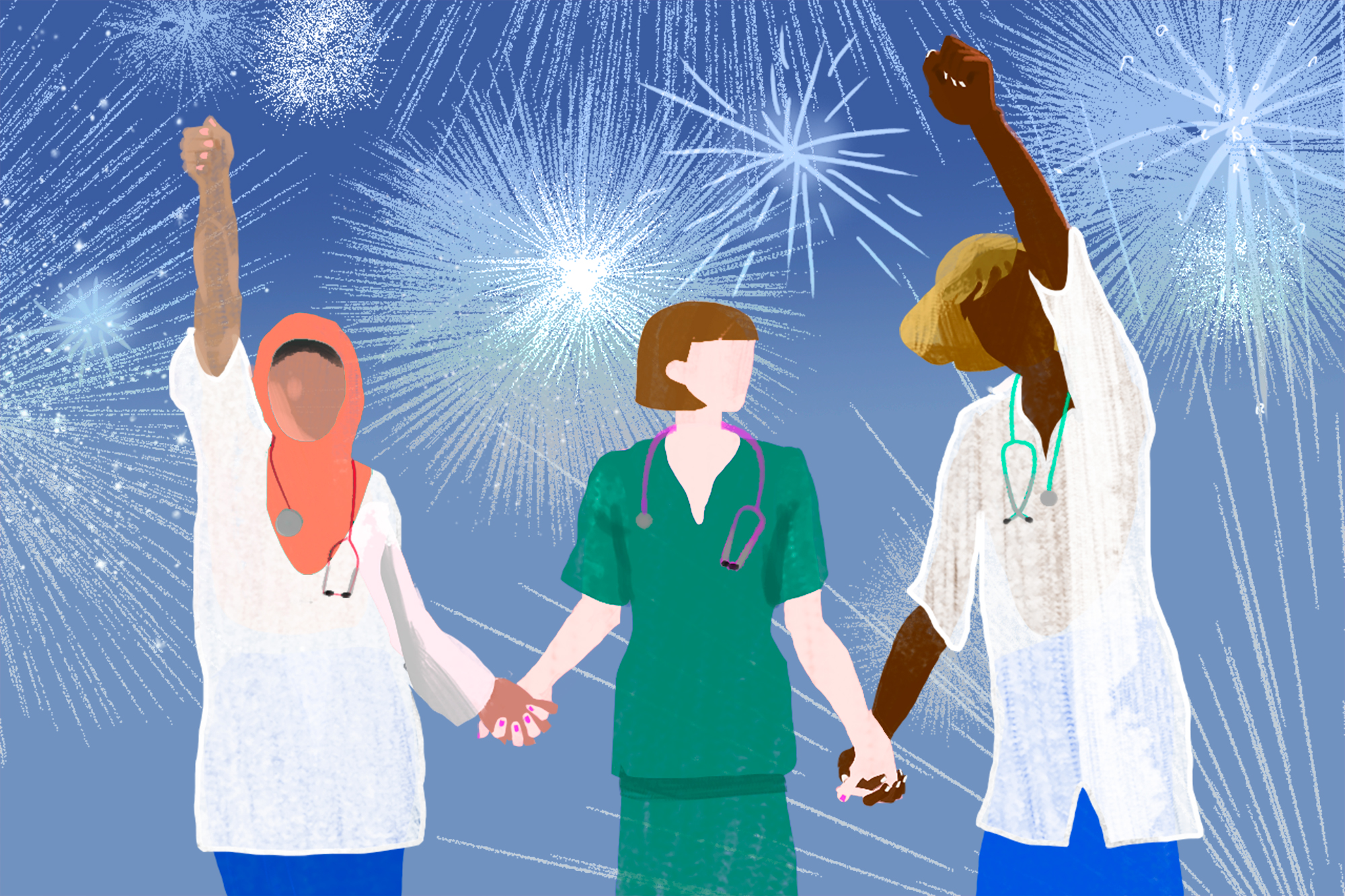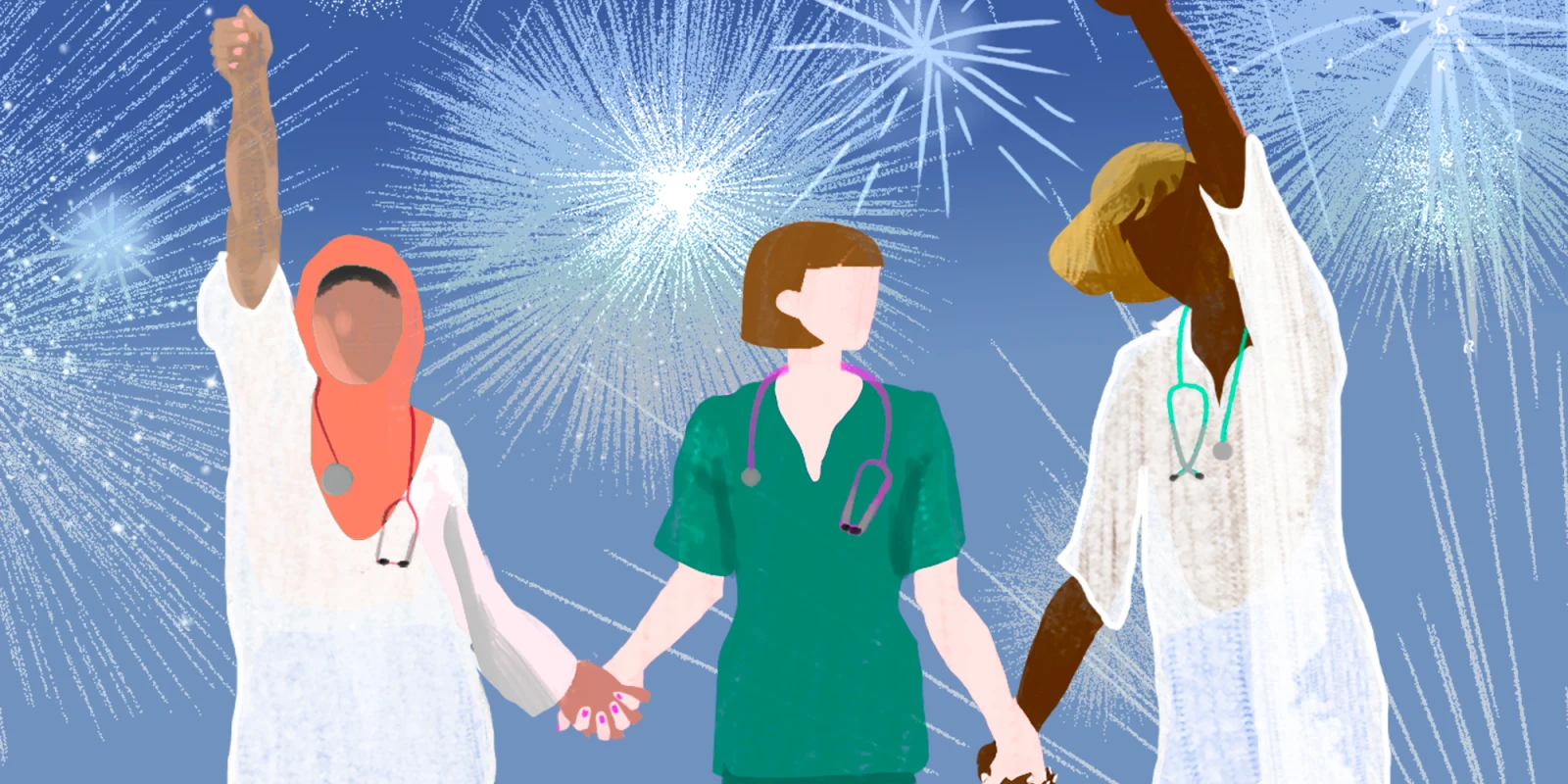
As a medical student, I cannot disconnect the tragedy of the COVID-19 pandemic from the tragedy of the racial injustices and violence over these past weeks. I see both as a call for us to examine our health care system with concerned, albeit tired eyes — a system that allots health care winners and losers, so often separated along racial lines.
In the case of COVID-19, we see a supply problem in a system failing to justly meet the needs of a diverse population. Without a doubt, the coronavirus has had a disproportionately negative impact on people of color. Where I live, in Washington, D.C., Black people comprise 45% of the total population yet account for 59% of COVID-19 related deaths. Make no mistake: This disparity is not one rooted in genetic differences, rather, it is the result of a health care system that persistently leaves people of color disproportionately affected by diseases like hypertension, diabetes, and heart disease — all underlying conditions thought to be associated with worse COVID-19 outcomes.
In the recent tragic acts of violence and discrimination against Black people, we see reflections of a demand problem. Populations who have historically experienced unjust treatment by the medical system internalize varying levels of distrust of that system. Just as incidents like the killing of George Floyd leave people of color less able to trust the criminal justice system, a history of unethical exploitation at the hands of those in medicine, as in the Tuskegee study, leaves people of color less likely to seek medical care and participate in research studies. These barriers to preventative care and lack of representation in research trials further contribute to disparate health outcomes.
I am heartened that my medical school repeatedly hammers home the realities of these systemic problems in health care, with the aim of producing doctors who are better equipped to bring about change and, as a result, improve patient care. But the words that dominate lectures and discussions in my preclinical curriculum — “unconscious bias,” “social determinants of health,” “systemic racism” — threaten now to fade and give way to words of more acute concern on busy wards — “differential diagnosis,” “positive predictive value,” “anion gap.”
I can easily forget that both types of words carry equal importance in the holistic medical care of a patient. Just as I can forget that patients will understandably bring their own assumptions into the exam room and view me as a white person in a white coat, someone who has benefited from white privilege in ways that words cannot appropriately convey. They may view me as someone unable to appreciate the history of systemic oppression that inherently colors our clinical encounter, as someone unwilling to call out the racially charged macro- and microaggressions that can descend as a pervasive fog upon a person of color interacting with the medical system. I believe it is my job, not the patient’s, to do the deliberate work of transcending those layers of our encounter.
For me, then, I hope that the enduring lesson of this time is to remember to do this daily, deliberate work. We, entering the medical profession, along with those already in it, must remember that each clinical encounter exists in the context of past and present systemic racial injustice. And only through this deliberate work of recognizing our privilege and biases, and calling out unjust words, actions, and systems wherever we see them, can we begin to chip away the racial divide of our nation’s health care disparities.
Liz Ghandakly is a medical student at George Washington University School of Medicine and Health Sciences and is pursuing a master's degree at the Johns Hopkins University Berman Institute of Bioethics. She is also an attorney.
Click here to see more perspectives on COVID-19 from the Doximity network.
Click here for up-to-date news about COVID-19 on Doximity.
Illustration by Jennifer Bogartz






